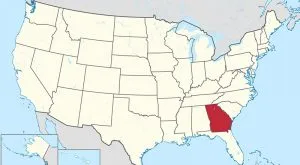Georgia, a biodiverse state boasting the majestic Appalachian Mountains, pristine Atlantic coastline, and the mysterious Okefenokee Swamp, is emerging as an attractive ecotourism destination in the United States. If you are a nature lover, eager to discover unspoiled beauty and learn about unique ecosystems, ecotourism tours in Georgia are the perfect choice. This article provides a detailed guide on how to join ecotourism tours in Georgia, helping you plan a memorable and meaningful nature exploration journey.
Why Choose Ecotourism in Georgia?
Georgia is not only famous for its vibrant capital Atlanta or charming historical cities but also a paradise for those passionate about nature exploration. Ecotourism in Georgia offers the opportunity to immerse yourself in diverse natural environments, from pristine mountain forests to rich coastal wetlands.
- Biodiversity: Georgia boasts a variety of ecosystems, from mountains, forests, rivers, and lakes to swamps and coastlines. This diversity fosters the development of countless plant and animal species, many of which are endemic and rare.
- Magnificent Natural Landscapes: The Appalachian Mountains in northern Georgia offer stunning mountain scenery, majestic waterfalls, and beautiful hiking trails. In contrast, the Okefenokee Swamp in the south is a completely different world with pristine, tranquil beauty and a unique swamp ecosystem.
- Close-to-Nature Experiences: Ecotourism tours in Georgia are designed to provide visitors with authentic and immersive experiences in nature. You can participate in activities such as hiking, kayaking, bird watching, fishing, camping, and learning about local ecosystems.
- Responsible Tourism: Ecotourism focuses on conserving nature and local culture while bringing economic benefits to the community. By participating in ecotourism tours in Georgia, you are contributing to environmental protection and supporting sustainable tourism development.
Top Ecotourism Destinations in Georgia
Georgia has many ideal destinations for ecotourism. Here are some top suggestions:
Okefenokee Swamp

The Okefenokee Swamp, one of North America’s largest intact freshwater peat wetland ecosystems, is a gem of Georgia ecotourism. Covering over 438,000 acres (1,770 km²), Okefenokee is home to a myriad of wildlife, including American alligators, river otters, softshell turtles, American white ibis, and numerous migratory bird species.
How to Explore the Okefenokee Swamp:
- Kayaking or Canoeing: This is the best way to explore the tranquil beauty of the swamp, weaving through narrow waterways, admiring the rich aquatic vegetation, and observing wildlife in their natural habitat.
- Guided Boat Tours: Many ecotourism companies offer guided boat tours, helping you learn more about the swamp’s ecosystem, history, and local culture.
- Hiking on Boardwalks: The Okefenokee National Wildlife Refuge has numerous boardwalk trails on land and over water, allowing you to explore different areas of the swamp and enjoy panoramic views.
- Camping: Overnight camping in the swamp offers you the chance to fully immerse yourself in the wilderness, listen to the sounds of the swamp at night, and gaze at the starry sky.
Appalachian Mountains

The southern end of the Appalachian Mountains extends into northern Georgia, creating a majestic mountainous region with high peaks, deep valleys, dense forests, and stunning waterfalls. This area is an ideal destination for outdoor enthusiasts and wilderness explorers.
Popular Ecotourism Activities in the Appalachian Mountains:
- Hiking and Backpacking: The Appalachian Mountains have hundreds of miles of hiking trails with varying difficulty levels, from easy family-friendly trails to challenging climbs for experienced hikers. The famous Appalachian Trail also passes through Georgia.
- Camping: Many campsites are located in the Chattahoochee-Oconee National Forests and state parks, allowing you to enjoy the wilderness and fresh mountain air.
- Bird Watching: The Appalachian mountain region is home to many rare bird species, especially migratory birds in spring and fall.
- Mountain Biking: Forest trails and rugged mountain roads are exciting challenges for mountain biking enthusiasts.
- Fishing and Boating on Rivers and Lakes: Georgia has many clear rivers and lakes in the mountains, ideal locations for fishing for trout, bass, and other freshwater fish. You can also kayak or canoe on calm lakes.
Georgia Coast

Georgia’s Atlantic coast stretches for about 100 miles (160 km), including barrier islands, salt marshes, pristine beaches, and coastal pine forests. This area has a unique coastal ecosystem and is home to many marine wildlife species, including sea turtles, dolphins, seabirds, and waterfowl.
Exploring Coastal Ecotourism in Georgia:
- Visiting Barrier Islands: Barrier islands like Cumberland Island, Jekyll Island, and Tybee Island offer unspoiled beauty, fine white-sand beaches, and opportunities for marine wildlife viewing.
- Kayaking or Canoeing in Salt Marshes: Exploring the salt marsh ecosystem by kayak or canoe is a fascinating experience, helping you learn about the important role of marshes in protecting the coastline and providing habitats for many creatures.
- Seabird and Waterfowl Watching: The Georgia coast is an important stopover for many migratory birds on the Atlantic Flyway. Spring and fall are ideal times for seabird and waterfowl watching.
- Beach Hiking and Nature Trails: Pristine beaches and coastal nature trails offer opportunities to enjoy the fresh sea air and discover unique coastal vegetation.
- Joining Marine Ecotourism Tours: Many ecotourism companies offer dolphin watching, sea turtle tours, fishing trips, and other marine exploration activities.
How to Join Ecotourism Tours in Georgia
To join ecotourism tours in Georgia, you can follow these steps:
- Identify Your Desired Destination and Tour Type: Do you want to explore the Okefenokee Swamp, the Appalachian Mountains, or the Georgia coast? Do you want to join a hiking tour, kayaking tour, wildlife watching tour, or camping trip? Clearly defining your preferences and desires will help you choose a suitable tour.
- Search for Reputable Ecotourism Companies: Many ecotourism companies operate in Georgia, offering a variety of tours and services. You can search for information online, ask for recommendations from friends or relatives who have been on ecotourism trips in Georgia. Prioritize choosing companies with experience, sustainable ecotourism certifications, and good customer reviews.
- Review Tour Details: After selecting a few potential tour companies, visit their websites or contact them directly to learn detailed information about the ecotourism tours they offer. Pay attention to the tour itinerary, price, activities included in the tour, tour difficulty level, and personal equipment requirements.
- Book Tours in Advance: Especially during peak tourist season, ecotourism tours are often fully booked in advance. Therefore, you should book your tour early, especially tours with limited spots or tours that require advance preparation of permits and procedures.
- Prepare Personal Equipment: Depending on the type of tour and destination, you need to prepare appropriate personal equipment. For example, if you join a hiking tour, you need to prepare hiking boots, comfortable clothing, a hat, sunglasses, sunscreen, insect repellent, water, and snacks. If you join a kayaking tour, you need to prepare quick-drying clothes, a hat, sunglasses, sunscreen, and a life jacket.
- Learn About Regulations and Guidelines: Before joining a tour, carefully learn about the regulations and guidelines of the tour company and the area you are visiting. This helps you ensure safety, comply with environmental protection principles, and have a smooth trip.
Tips for a Successful Ecotourism Trip in Georgia
- Choose the Right Time: The best time for ecotourism in Georgia is spring and fall, when the weather is cool and pleasant, and nature is most beautiful. Summer can be hot and humid, while winter can be cold, especially in the mountains.
- Pack Appropriate Gear: Prepare clothing, footwear, hats, sunglasses, sunscreen, insect repellent, and other personal items suitable for the activities and weather.
- Respect Nature: Adhere to environmental protection regulations, do not litter, do not make loud noises, do not disturb wildlife, and do not pick flowers or break branches.
- Learn About Local Culture: Ecotourism is not only about exploring nature but also about learning about local culture and people. Take time to interact with locals, learn about customs and traditions, and enjoy local cuisine.
- Travel Responsibly: Choose ecotourism companies committed to environmental protection and supporting local communities. Use environmentally friendly products and conserve energy throughout your trip.
Conclusion
Ecotourism in Georgia is a wonderful opportunity to explore the unspoiled, diverse natural beauty and learn about the unique ecosystems of this state. With detailed guidance on how to join ecotourism tours and suggestions for attractive destinations, hopefully, you will have a memorable and meaningful trip in Georgia. Plan your trip today and prepare for an amazing nature exploration journey!